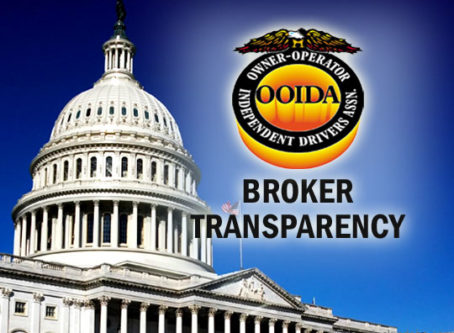Massachusetts governor renews pursuit of tougher truck rules
A renewed effort by the Massachusetts governor would modify regulations for the operation of commercial vehicles.
Gov. Charlie Baker took up the effort to address truck rules shortly after a June 2019 crash killed seven motorcyclists in New Hampshire. The motorcyclists were struck by a pickup towing a flatbed trailer driven by a Massachusetts CDL holder.
Connecticut officials reportedly alerted Massachusetts twice about a May 11, 2019, drunken driving arrest against Volodymyr Zhukovskyy of West Springfield, Mass. The Massachusetts Registry of Motor Vehicles failed to suspend the 23-year-old’s license in the month leading up to the June 21, 2019, crash.
In response, Baker introduced a bill this fall to change certain CDL rules. A previous version of the legislation focused on raising state standards for CDLs above the minimum requirements of federal law.
The governor said after introducing his initial bill that while the Registry of Motor Vehicles failed to act prior to the June 2019 incident, more can be done to prevent other incidents.
“My administration’s review has revealed a broader need to strengthen the Commonwealth’s laws regulating commercial driver’s licenses to ensure that only safe and qualified drivers are authorized to operate the largest vehicles on our roads,” Baker said in a letter to Massachusetts House and Senate lawmakers.
Baker administration’s plea
Transportation Secretary Stephanie Pollack told the Legislature’s Joint Committee on Transportation on the first full day of the 2020 regular session that action needs to be taken to address concerns about CDL licensing in the state.
The meeting this past January marked the third time since July 2019 she has provided testimony to the panel on the issue.
Pollack told committee members the Legislature must act on the issue to allow the state’s Registry of Motor Vehicles to move forward with the changes.
The secretary added that she recognizes the majority of CDL holders are not a concern. She said the state wants to address the few in the industry who should not be on the road.
Baker’s pursuit of change
Among the provisions in the governor’s newest bill is a renewed definition of “serious traffic violation” to include improper or erratic traffic lane changes, following another vehicle too closely, or excessive speeding.
Driving recklessly would include, but not limited to, offenses of driving a vehicle in “wanton disregard for the safety of persons or property;” driving a commercial vehicle without obtaining a CDL or commercial vehicle learner’s permit; and driving a commercial vehicle while using a mobile electronic device.
Additionally, suspension periods would be raised for CDL operators who commit multiple, serious traffic violations. The minimum suspension period would be raised from 60 to 120 days for drivers who commit two serious traffic violations during a three-year period. The minimum suspension period would be raised from 120 to 240 days for drivers who commit three serious violations during the same time period.
Drivers would also be required to provide notification within one business day to employers and the Registry of Motor Vehicles if they are convicted of violating any state or local traffic law, or if they have their right to operate a vehicle revoked or suspended by any state.
Violators now have 30 days to provide notification.
Baker’s bill would fine offenders $500 in addition to any other administrative action imposed as a consequence of the suspension, revocation, or cancellation.
Employers hiring commercial drivers would be required to sign up for the state’s driver verification system. The system is a free service that provides automatic notification to employers when an employee’s CDL status changes.
In addition, employers who knowingly allow, require, permit or authorize a driver to operate a commercial vehicle during any period in which the truck driver is subject to an out-of-service order would be subject to fine ranging from $5,591 to $30,956 – up from $2,750 to $11,000.
Baker previously stated the changes he is pursuing would “enhance roadway safety by improving the tools the Commonwealth has to ensure that only qualified, responsible, and safe drivers are operating commercial motor vehicles on the roads.”
The legislation introduced early this year failed to meet a spring deadline to advance from committee. Inaction was partly attributed to disrupted legislative schedules due to the coronavirus.
As a result, a new bill was introduced this fall to continue pursuit of the governor’s changes. The Joint Committee on Transportation has since voted to advance the bill, H4967, for further consideration to the House Ways and Means Committee. LL









